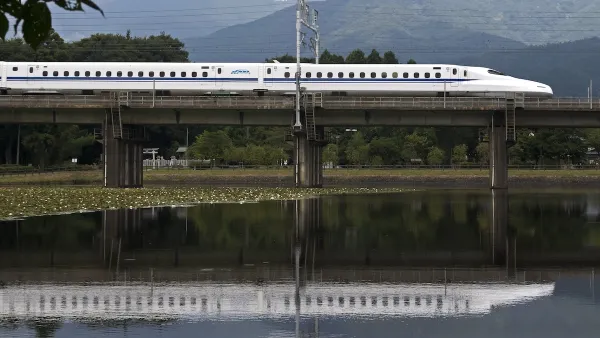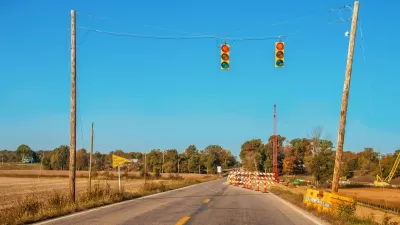Eric Jaffe traces the uneven history of private sector involvement in road construction and management. The involvement of public-private partnerships will likely continue to grow, despite the potential pitfalls.
"Public-private partnerships for infrastructure (often called PPPs or P3s) have been on the rise in recent years, and many experts believe the trend has yet to peak," observes Jaffe. "But as public-private partnerships become more common, there's a heightened fear that local governments are giving away too much in the deal. Some scholars, public interest groups, and lawmakers caution that PPPs often fail to deliver the improvements they promise, cuff the hands of local officials for generations, undermine comprehensive urban planning, and threaten the core value of roads as a public service. For every new attempt at PPP success, they say, there are multiple examples of partnerships that failed."
"No amount of concern is likely to curtail the rising interest in public-private partnerships," he adds. "Rather, their use only stands to increase as governments at all levels continue to struggle with new methods for funding transportation projects. Besides, PPPs offer elected officials the glitter of ribbon-cutting with the grit of fiscal austerity — all while limiting their responsibility for any toll hikes that might occur. They're high-quality political catnip."
FULL STORY: The Uncertain Future of Public Roads

Planetizen Federal Action Tracker
A weekly monitor of how Trump’s orders and actions are impacting planners and planning in America.

Restaurant Patios Were a Pandemic Win — Why Were They so Hard to Keep?
Social distancing requirements and changes in travel patterns prompted cities to pilot new uses for street and sidewalk space. Then it got complicated.

Map: Where Senate Republicans Want to Sell Your Public Lands
For public land advocates, the Senate Republicans’ proposal to sell millions of acres of public land in the West is “the biggest fight of their careers.”

Maui's Vacation Rental Debate Turns Ugly
Verbal attacks, misinformation campaigns and fistfights plague a high-stakes debate to convert thousands of vacation rentals into long-term housing.

San Francisco Suspends Traffic Calming Amidst Record Deaths
Citing “a challenging fiscal landscape,” the city will cease the program on the heels of 42 traffic deaths, including 24 pedestrians.

California Homeless Arrests, Citations Spike After Ruling
An investigation reveals that anti-homeless actions increased up to 500% after Grants Pass v. Johnson — even in cities claiming no policy change.
Urban Design for Planners 1: Software Tools
This six-course series explores essential urban design concepts using open source software and equips planners with the tools they need to participate fully in the urban design process.
Planning for Universal Design
Learn the tools for implementing Universal Design in planning regulations.
Heyer Gruel & Associates PA
JM Goldson LLC
Custer County Colorado
City of Camden Redevelopment Agency
City of Astoria
Transportation Research & Education Center (TREC) at Portland State University
Camden Redevelopment Agency
City of Claremont
Municipality of Princeton (NJ)





























